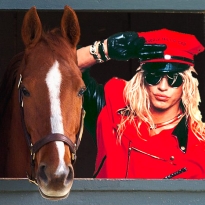 Despite having engineered the exit in October of one of the chief legislative opponents of bringing casino gambling to Kentucky, Gov. Steve Beshear remains pessimistic on the likelihood of casino legislation passing in 2013. On Thursday, Beshear said that if he believed he had a 3/5 majority in both chambers that would support amending Kentucky’s constitution to permit casino gambling, he’d put forth a proposal to do so. But in a subsequent conversation with the Associated Press, Beshear said legislators were “faced with a short [30-day] session and a lot of tough issues, and that may affect people’s thinking about what we should do.” Beshear and other casino backers claim the state is losing out on millions of tax dollars from Kentuckians gambling at casinos in neighboring states, but opposition to a casino amendment remains high.
Despite having engineered the exit in October of one of the chief legislative opponents of bringing casino gambling to Kentucky, Gov. Steve Beshear remains pessimistic on the likelihood of casino legislation passing in 2013. On Thursday, Beshear said that if he believed he had a 3/5 majority in both chambers that would support amending Kentucky’s constitution to permit casino gambling, he’d put forth a proposal to do so. But in a subsequent conversation with the Associated Press, Beshear said legislators were “faced with a short [30-day] session and a lot of tough issues, and that may affect people’s thinking about what we should do.” Beshear and other casino backers claim the state is losing out on millions of tax dollars from Kentuckians gambling at casinos in neighboring states, but opposition to a casino amendment remains high.
Much of this opposition comes from local racetrack operators and politicians hailing from racetrack districts who have insisted that any legislation authorizing casinos would need to either (a) ensure a prominent role for racetracks in offering casino gaming or (b) redirect a portion of the state tax revenue from casino gaming into the racetrack operators’ coffers in the form of purse subsidies. Churchill Downs Inc. (CDI), which hosts the annual Kentucky Derby at its eponymous facility in Louisville, issued a statement on Friday saying that its “primary concern is that [CDI] own and operate any casino in the Louisville market. If not, 138 years of racing heritage and Kentucky Derby tradition will be put at risk.”
To which we say, so what? Who exactly was it that determined the horseracing industry was owed blanket immunity to the ebbs and flows of popular taste? The crowd in attendance at the most recent Breeder’s Cup race was described by The Atlantic as having “more square feet of fedoras, cigars and women in St. John’s suits” anywhere else except “a nursing facility in Miami.” No doubt some find it sad that horseracing has failed to capture the interest of younger generations, but should that warrant government intervention to pick winners and losers in the commercial sphere?
To take this argument to its illogically absurdist extreme, consider that hair-metal bands ruled the radio airwaves in the 1980’s, and while a few bands like Mötley Crüe and Kiss can still pack ‘em in, other genres like hip-hop and dance music are now infinitely more popular with younger music fans. No doubt this shift in popular taste wrought havoc with the financial wellbeing of hair-metal bands, not to mention the genre’s support industries, like companies making double-neck guitars, spandex pants, hairspray, codpieces, pyrotechnics and 72-piece drum kits. Yet there’s no serious push to legally require radio stations to dedicate a certain number of hours per day solely to the playing of Poison tunes. Probably because that would be, you know, dumb. Not to mention really fucking annoying.
Across the US, the horseracing industry stands athwart the liberalization of gaming laws in virtually every state in which it operates. Horseracing concerns in the UK stage an annual raid on bookmakers’ wallets to fund the much-loathed Levy subsidy, but at least it can be argued that people in the UK still wager on horses (albeit less and less each year). Meanwhile, the chief obstacle to California passing online poker legislation is the horseracing industry’s insistence that they be guaranteed a role, despite having no prior experience whatsoever with poker. No one’s saying racetrack operators should be purposefully excluded from participating in a Kentucky casino market. But let their participation be determined by the competitiveness of their bid and the quality of their offering, not some perceived God-given right to a monopoly on gambling.





